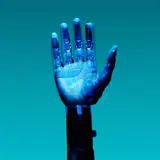Aspiring Writers and AI: A Tool for Growth or a Substitute for Skill?

Does AI provide support to our aspiring writers in the classroom, or does it replace their writing skills entirely?
On his blog, educational consultant Leon Furze critiques OpenAI's evolving approach towards writing and writers in “OpenAI is Coming for Writers,” arguing that the company's focus is on replacing rather than empowering writers. While earlier iterations of AI writing tools like ChatGPT drew skepticism for their limitations, OpenAI’s recent advancements, such as the Canvas feature and enhanced creative writing abilities, prioritize reader-centric simplicity over meaningful support for authors.
Furze focuses on a few key points. For starters, the tools designed for writers are reductive, meaning that they seek to simplify and reduce, which contrasts sharply with the robust tools that, for example, programmers use in order to enhance their workflow. OpenAI’s A Student’s Guide to Writing with ChatGPT also promotes some ethically questionable practices, like simulating debates with historical figures (Furze calls this "digital necromancy”), and the emphasis on brevity in OpenAI’s tools could be described as a kind of dumbing down of writing that meets surface-level engagement, at the expense of creating any real depth. All of this to say that what critics like Furze really fear is that OpenAI’s approach signals a shift toward replacing human creativity with AI-generated micro-content that prioritizes efficiency over substance.
Furze favors tools that genuinely support the writing process, which would enhance clarity and argumentation, rather than reduce writing to simplified, reader-friendly junk. His concern reflects a broader question across multiple industries about the impact of AI on creative content.
AI writing tools are becoming increasingly sophisticated and accessible to students. These tools are capable of generating text that is indistinguishable from human-written work, and that raises concerns about not only academic integrity, but the value of traditional writing assignments altogether. AI writing tools can also create misleading content, which makes it especially important for teachers to be aware of their capabilities and limitations.